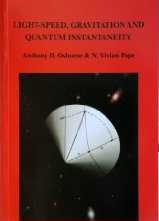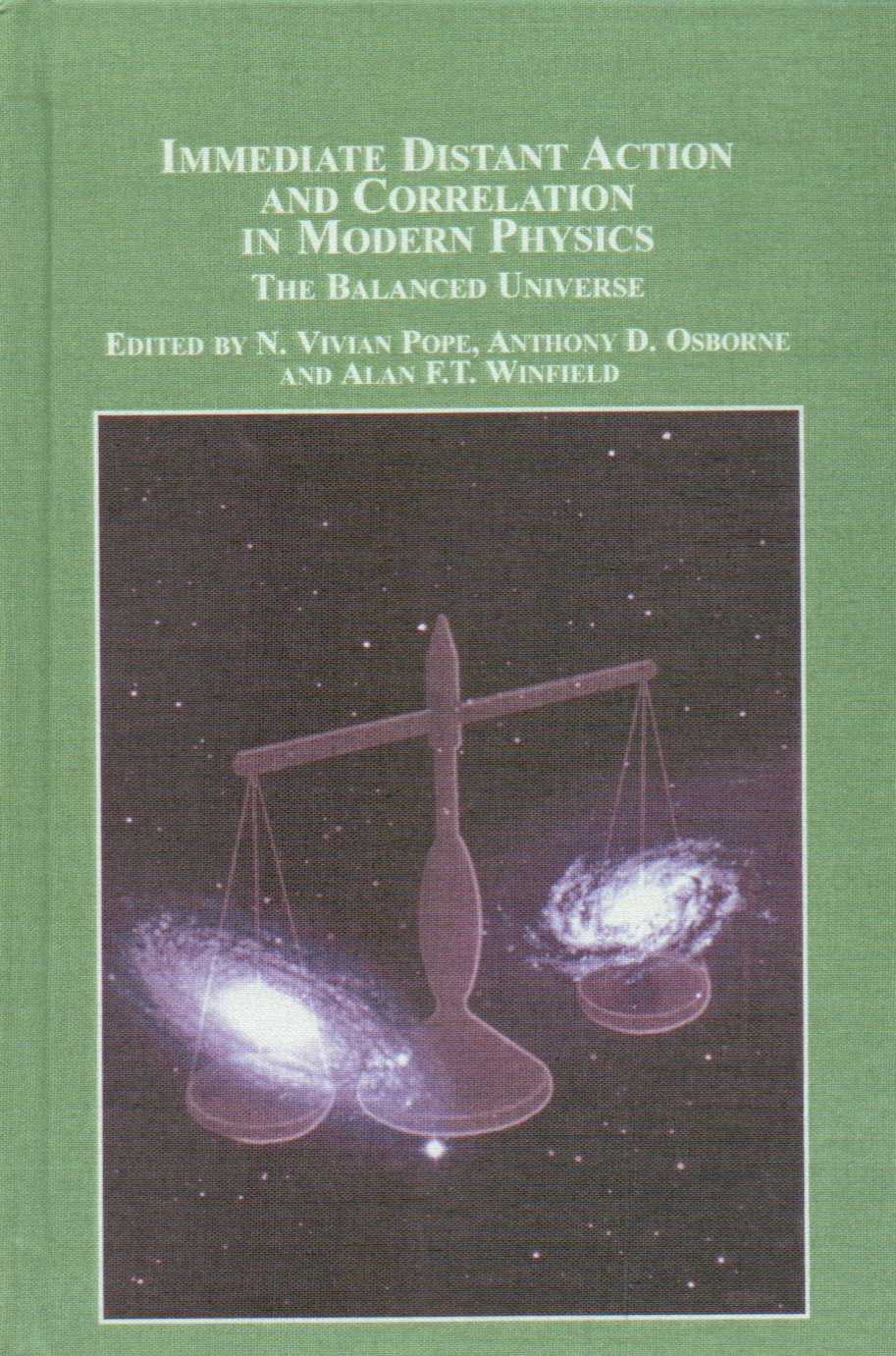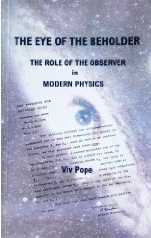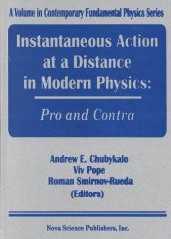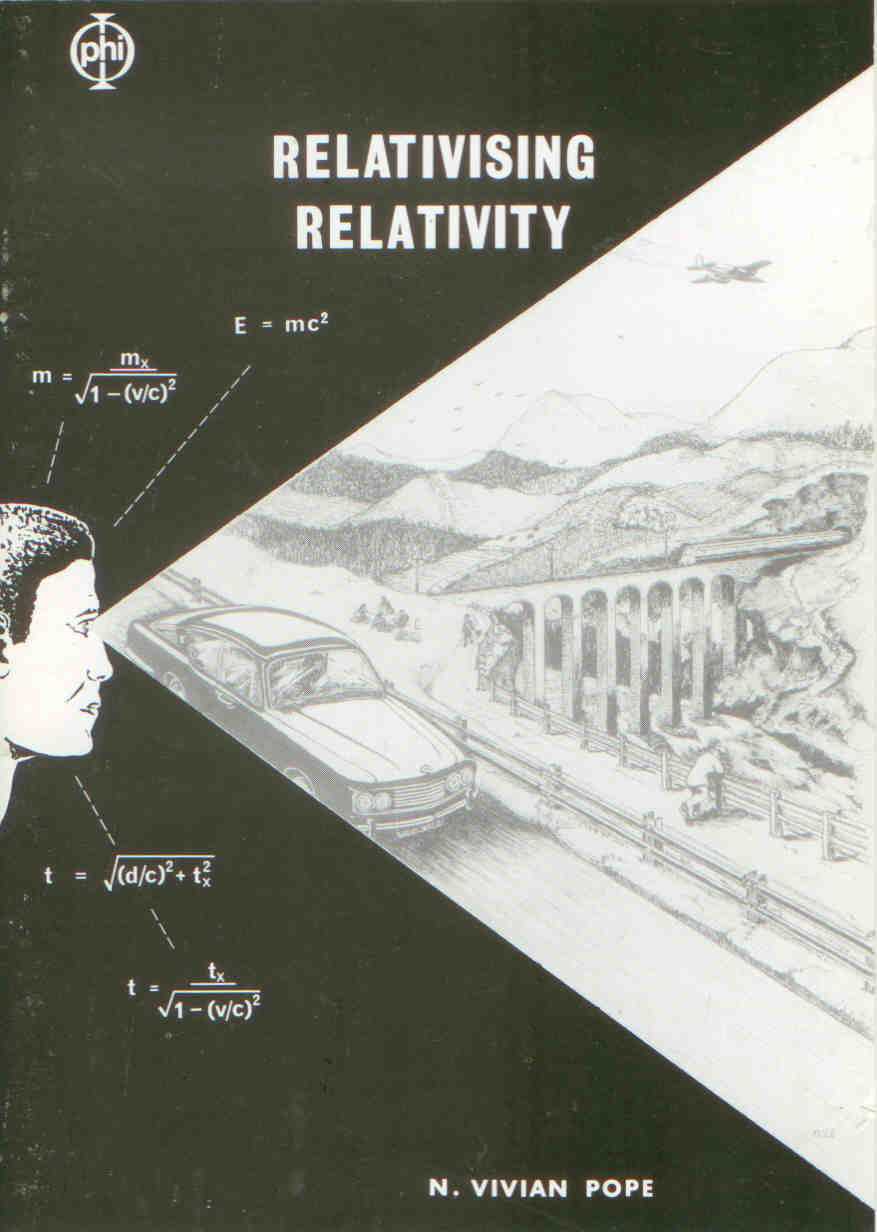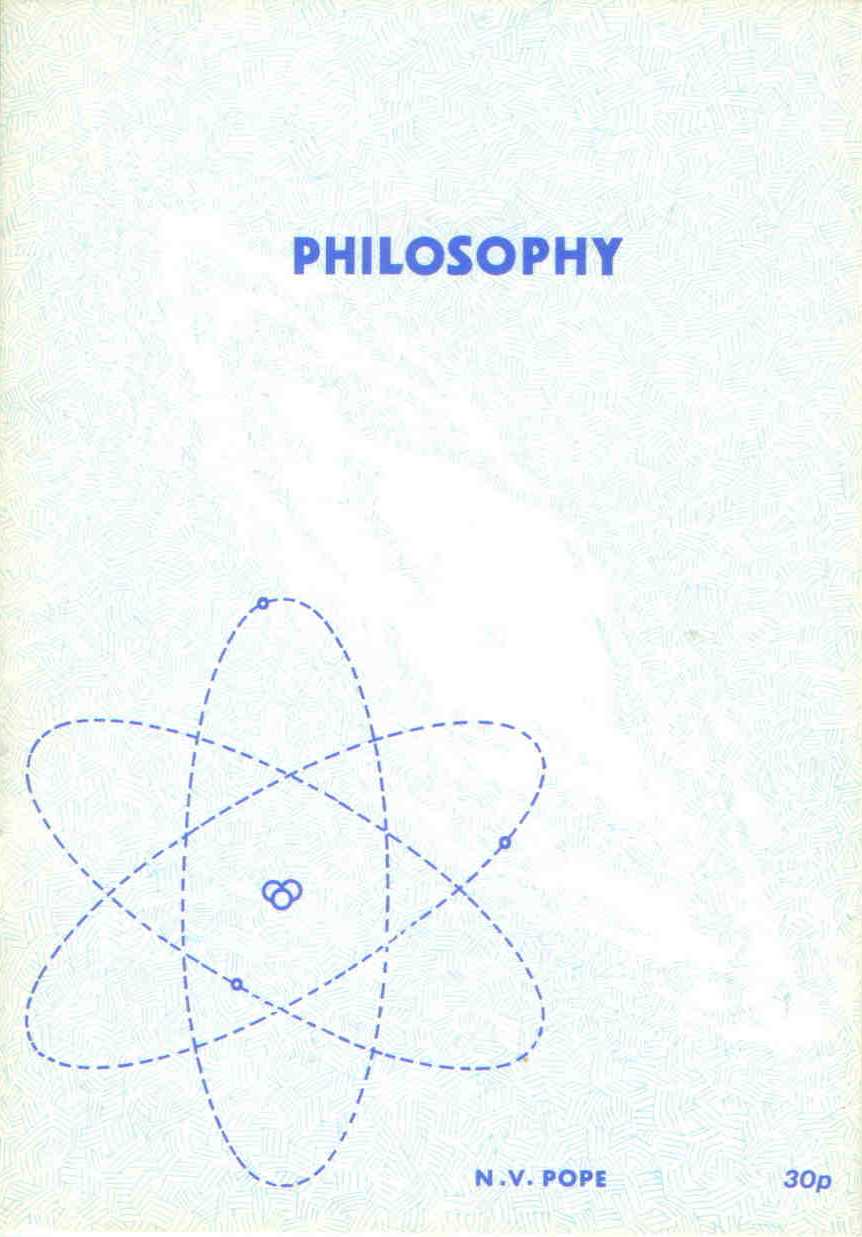Pages: 244
Publisher: Phi Philosophical Enterprises
Year: 2008
ISBN: 0950379069
ISBN: 978-0950379067
Websites: www.poams.org www.vivpope.co.uk
Read some of its content now
Pages: 306
Publisher: Edwin Mellen Press
Year: 2005
ISBN: 0773460640
ISBN: 978-0773460645
Websites: www.poams.org www.vivpope.co.uk www.mellenpress.com/mellenpress.cfm?bookid=6464&pc=9
This book advances and extends the debate on unmediated instantaneous action and correlation at a distance. It is a coherent collection of contributions, by an international group of science scholars, resulting from a series of workshops held at the University of Wales, Swansea, in 2001 and 2002. The editors of this book share a common view that action or correlation at a distance is simply a fact of nature. From that starting point, it offers a number of different arguments, analyses and theoretical perspectives. The book does not represent the end of the debate, but rather a beginning, which could lead to a new physics and a more accurate view of nature.
Chapters:
- Introduction 1
- What the Swansea Workshop Was About 5
- A Reiteration of Aims and Objectives (Viv Pope) 21
- Towards a Consensus (Anthony Osborne) 27
- A Tale of Two Paradigms (Viv Pope) 71
- The Evidence and Consequences of Newtonian Instantaneous Forces (Neal and Peter Graneau) 121
- A Perspective on Mach's Principle and the Consequent Discovery of Major New Phenomenology in Spiral Discs (David Roscoe) 169
- A Short Essay on Closed Systems, Hierarchy and Radiation (George Galeczki) 185
- The Pope-Osborne Angular Momentum Synthesis (Anthony Osborne) 199
- How to Get Something From Nothing (Peter Rowlands) 241
- Futher Developments 271
- General Conclusion 285
Pages: 103
Publisher: Phi Philosophical Enterprises
Year: 2004
ISBN: 0950379050
ISBN: 978-0950379050
Websites: www.poams.org www.vivpope.co.uk
A discussion on aspects of modern physics, the scientific conception of nature and the need to keep a watchful eye on the excessive theories of scientists so that an argument for a science based wholly on observation can be presented which will be available to both specialists and non-specialists alike.
Find reviews of The Eye of the Beholder in NASA's Missing Spin, or A Dangerous Book.
Pages: 475
Publisher: Nova Science Publishers
Year: 1999
ISBN: 1560726989
ISBN: 978-1560726982
Websites: www.poams.org www.vivpope.co.uk
The editorial approach is unusual in that in order to break the current conceptual deadlock and to encourage true innovation they have solicited inputs which are multidisciplinary. This open-ended venture is therefore perhaps more in line with what was once called Natural Philosophy than with what is currently known as 'Physics'. This is something of a departure for those who say that Physics no longer has anything to do with Philosophy. For there are physicists who believe that their predecessors have accomplished all the really important conceptual work on interpreting natural phenomena, so that there is no longer any call for radical revision in that direction. This leads to a constricted form of the discipline in which the purpose of all observation and experimentation is seen as simply to collect more and more information and fit it to conceptions which are traditionally 'cut and dried'.
The emphasis is thus on presenting informed and carefully considered descriptions of natural phenomena, economizing as far as possible on interpretations in terms of entities which turn out to be no more than speculative.
Pages: 10
Publisher: Phi Philosophical Enterprises
Year: 1981
ISBN: 0950379034
ISBN: 978-0950379036
Websites: www.vivpope.co.uk
This booklet presents a unique derivation and interpretation of the famous gamma factor of Einsteinian time dilation and length contraction without the need for assumptions regarding light propagation "in vacuo". Arguing from the interaction theses of Berkeley, Mach, and Poincare, Vivian Pope reaches his conclusions from two premises:
- "...objects and events are distributed in relation to one another in the reference field of... specific observer[s]..."
- "...objective or public space... is the logical and mathematical co-ordination of... private spaces, or perspectives..."
From these is developed a relativity principle fundamentally different from Einstein's and based upon the interactions between matter and matter, not matter and space. With a new understanding of space itself, the mathematical relationship expressing "time dilation" becomes a matter of Pythagorean geometry in conventional, linear time. As a side benefit, Pope also interprets "quantum indeterminacy" as a consequence of the "indeterminacy" of space itself.
Pages: 8
Publisher: Phi Philosophical Enterprises
Year: 1975
ISBN: 0950379018
ISBN: 978-0950379012
ISBN: 095037900X
ISBN: 978-0950379005
Websites: www.vivpope.co.uk
Providing the insight of a dissident scientist on the larger questions of life, this booklet examines the meaning of philosophy, as opposed to technology, and provides an outline of its role in morals, politics, science, and logic. Rather than "sheer, dispassionate, rational contemplation", Vivian Pope argues that philosophy "involves evaluation,... the wise selection of... information" for the "ultimate or long-term welfare of mankind, both as an individual and as a whole - which man... must secure for himself by proper exercise of his distinguishing natural faculty, reason."

